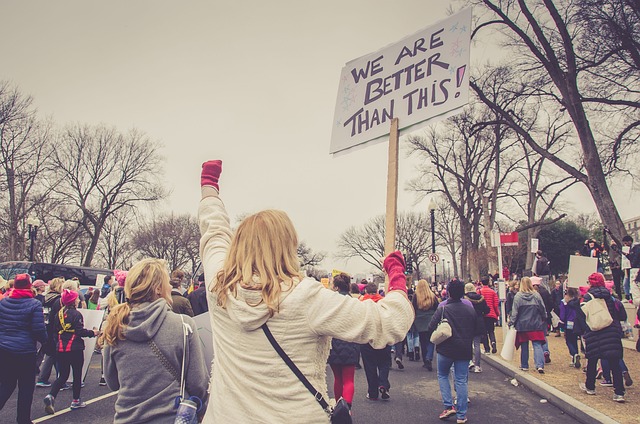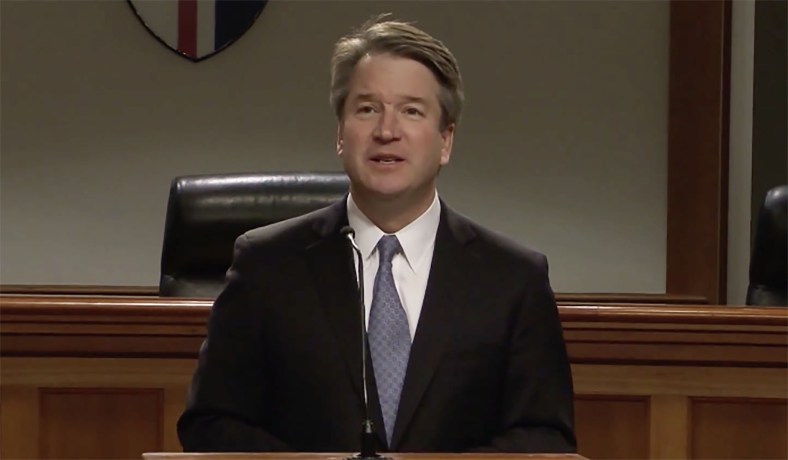The Fifth Circuit Court of Appeals recently issued a devastating ruling on the First Amendment right to assemble. The court allowed a lawsuit to proceed against Black Lives Matter leader DeRay Mckesson for allegedly “negligently” organizing a protest.
The case arose when Mckesson organized a protest where an unknown assailant threw an object that injured a police officer. Mckesson did not assault anyone, and nobody argues that Mckesson incited or directed anyone to hurt the officer. Instead, the Fifth Circuit claims that, by organizing a protest where it is reasonably foreseeable that someone could be injured, a protest organizer can be liable. As the Fifth Circuit contends, “Mckesson should have known that leading the demonstrators onto a busy highway was likely to provoke a confrontation between police and the mass of demonstrators yet he ignored the foreseeable danger to officers, bystanders, and demonstrators.”
It is hard to think of a ruling more damaging to the right to assemble in a public protest or rally, short of banning such events entirely. If someone can be liable for organizing a protest where someone might suffer an injury or other damages, then organizing a protest on almost any contentious issue puts the organizer at risk of financial ruin.
Here are some examples where a protest organizer could have faced personal liability under this reasoning:
-
-
- Martin Luther King Jr. organized a protest to peacefully cross the Selma Bridge. It was reasonably foreseeable that police officers would violently engage protesters, and protesters were attacked by police while crossing the Selma Bridge. The Fifth Circuit’s reasoning would have allowed Dr. King, as the organizer, to be personally sued for the injuries incurred by police or protesters. No matter that the leaders strenuously advocated for nonviolent protest. The only way to avoid personal liability would have been to avoid organizing the protest entirely. As Judge Don Willet explains in his dissent, this “exotic theory would have enfeebled America’s streetblocking civil rights movement, imposing ruinous financial liability against citizens for exercising core First Amendment freedoms.”
- In Charlottesville, individuals organized a counterprotest against the white nationalist Unite the Right rally to protest the group’s hateful message. However, it was reasonably foreseeable that white nationalist groups might violently attack the counter-protesters. Indeed, the white nationalist James Field drove a car into counter-protesters and murdered Heather Heyer and injured others. The Fifth Circuit’s reasoning might allow injured police or protesters to recover damages from the organizers of the counterprotest if they committed even a minor violation of some law. Ultimately, the Fifth Circuit is allowing individuals a kind of violent veto against groups they dislike. If you can use or threaten violence to create a foreseeable risk of injury or damage at a protest or rally, you can trigger personal liability for peaceful protest organizers for “negligent protest activity” under the Fifth Circuit’s logic.
- You are a devout football fan. After your team wins the Super Bowl, you lead exuberant fans into the street to celebrate. Police come to clear the street and a drunken fan, completely unknown and unconnected to you, injures a police officer. The police officer then sues you. You are found personally liable for the officer’s injuries because you created dangerous conditions by leading people into the street. The court rules it was foreseeable that there could be acts of violence during the tumultuous celebrations.
-
Of course, protesters are liable for acts of violence, incitement of others to acts of violence, or engaging in illegal activity. Mckesson can be held accountable for blocking a public highway. But the Fifth Circuit strays far beyond this standard and says he can be liable for the violent acts of others.
As Judge Willet noted in his dissent, “The majority’s theory of negligence liability would reduce First Amendment protections for protest leaders to a phantasm, almost incapable of real-world effect.” In effect, the Fifth Circuit has hollowed out the right to publicly assemble. The shell of this right says that individuals can protest or rally, so long as they are willing to risk financial ruin. The First Amendment protects people from having to make this impossible choice.
The First Amendment ensures a robust right to protest and limits personal liability for speaking on public issues or facilitating speech. Anyone who wants to lead rallies or protests to advocate on any matter of public concern should fear this ruling. The Supreme Court, or the entire Fifth Circuit, should review and reverse this flawed ruling and restore the First Amendment right to assemble to its proper strength.














